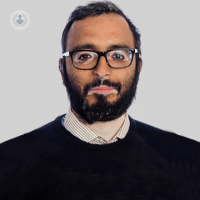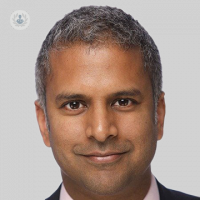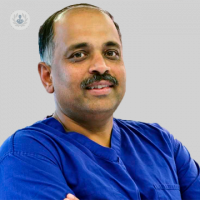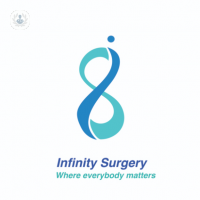What does the term medicolegal mean?
The term medicolegal refers to both medicine and law. It can refer to two things:
1. The study and application of medical and scientific methods as evidence in a legal case, e.g. paternity, cause of death, rape, etc. This is also referred to as legal medicine or medical jurisprudence.
2. Medical law (the branch of law that governs proper medical practices).
The two should not be confused, although some legal cases can involve both, for instance, if a doctor is called as an expert witness for a malpractice case against another healthcare provider.
What is meant by legal medicine?
There are many potential cases where medical and scientific expertise may be important in law. Examples can range from disputes over paternity to criminal proceedings. A doctor may be called to produce evidence about the case or appear in court as an expert witness.
As an expert witness, the doctor may use their scientific knowledge and expertise to give the court insight into the available evidence, which may prove valuable in ascertaining the truth about the events of the case.
Forensic medicine is one particular specialist field, which involves collecting and analysing samples from a criminal case to produce objective evidence for the court.

Medical law
Medical law sets out the proper code of conduct, the responsibilities of healthcare providers, and the rights of patients. If a healthcare provider is suspected of having committed medical malpractice and caused unnecessary harm to a patient, they risk legal action from said patient. Criminal law also applies to the medical world to ensure that healthcare provides do not engage in criminal activity in their practice.
What is clinical negligence?
Clinical negligence, also known as medical negligence, is when a patient is injured as a result of negligent medical treatment. In such cases, patients can seek compensation for this. Examples of clinical negligence may be:
- if a patient is diagnosed incorrectly
- if they are given the wrong medication for an inappropriate length of time
- if a mistake was made during a medical procedure
- if a patient is not informed correctly of the risks of a certain treatment
- if a patient didn't give their informed consent prior to treatment
Clinical negligence must be proven, with certain criteria that must be met and displayed in order for a compensation claim to be made.
Who are medicolegal specialists?
Almost any doctor can specialise in medicolegal. Check out the UK's leading medicolegal specialists here.
03-02-2018 05-15-2024Medicolegal
Dr Taimour Alam - Neurophysiology
Created on: 03-02-2018
Updated on: 05-15-2024
Edited by: Conor Lynch
What does the term medicolegal mean?
The term medicolegal refers to both medicine and law. It can refer to two things:
1. The study and application of medical and scientific methods as evidence in a legal case, e.g. paternity, cause of death, rape, etc. This is also referred to as legal medicine or medical jurisprudence.
2. Medical law (the branch of law that governs proper medical practices).
The two should not be confused, although some legal cases can involve both, for instance, if a doctor is called as an expert witness for a malpractice case against another healthcare provider.
What is meant by legal medicine?
There are many potential cases where medical and scientific expertise may be important in law. Examples can range from disputes over paternity to criminal proceedings. A doctor may be called to produce evidence about the case or appear in court as an expert witness.
As an expert witness, the doctor may use their scientific knowledge and expertise to give the court insight into the available evidence, which may prove valuable in ascertaining the truth about the events of the case.
Forensic medicine is one particular specialist field, which involves collecting and analysing samples from a criminal case to produce objective evidence for the court.

Medical law
Medical law sets out the proper code of conduct, the responsibilities of healthcare providers, and the rights of patients. If a healthcare provider is suspected of having committed medical malpractice and caused unnecessary harm to a patient, they risk legal action from said patient. Criminal law also applies to the medical world to ensure that healthcare provides do not engage in criminal activity in their practice.
What is clinical negligence?
Clinical negligence, also known as medical negligence, is when a patient is injured as a result of negligent medical treatment. In such cases, patients can seek compensation for this. Examples of clinical negligence may be:
- if a patient is diagnosed incorrectly
- if they are given the wrong medication for an inappropriate length of time
- if a mistake was made during a medical procedure
- if a patient is not informed correctly of the risks of a certain treatment
- if a patient didn't give their informed consent prior to treatment
Clinical negligence must be proven, with certain criteria that must be met and displayed in order for a compensation claim to be made.
Who are medicolegal specialists?
Almost any doctor can specialise in medicolegal. Check out the UK's leading medicolegal specialists here.


Medico-legal consultation: a comprehensive guide
By Dr Hana Patel
2024-11-21
GP and medico-legal expert Dr Hana Patel explains everything you need to know regarding medico-legal consultations, including when they are necessary, how information is evaluated and challenges which can arise during such consultations. See more


Medicolegal work: What does it involve?
By Dr Awais Iqbal
2024-11-20
Navigating the legalities surrounding medical issues can be daunting for patients. Medicolegal work, the intersection of medicine and law, plays a crucial role in protecting patients' rights and ensuring they receive appropriate care. Distinguished family medicine and occupational medicine physician Dr Awais Iqbal explores what medicolegal work entails, why it's important, and how it can benefit you as a patient. See more
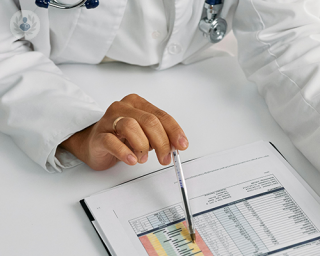

Navigating medico-legal dynamics in healthcare
By Dr Hana Patel
2024-11-18
The field of medico-legal practice has emerged as a crucial framework guiding healthcare professionals, legal experts, and policymakers alike. Here, Dr Hana Patel, renowned GP and medico-legal expert, provides an expert insight into the medico-legal dynamics in healthcare, exploring their significance, complexities, and transforming role. See more
Experts in Medicolegal
-
Dr Dougall McCorry
NeurologyExpert in:
- Neurological disorders
- Epilepsy
- Headache
- Medicolegal
- Amnesia
- Whiplash
-
Mr Samer Morgan
Orthopaedic surgeryExpert in:
- Ankle replacement surgery
- Foot and ankle
- Achilles tendon
- Minimally invasive bunion surgery
- Joint injections
- Sports injuries
-
Professor Francis Chinegwundoh MBE
UrologyExpert in:
- Prostate cancer
- Benign prostate enlargement
- Medicolegal
- Hydrocele
- Erectile dysfunction
- Vasectomy
-
Mr Priy Silva
Otolaryngology / ENTExpert in:
- Head and neck cancer
- Neck lump
- Salivary gland surgery
- Sinusitis
- Medicolegal
-
Mr Rakesh Kucheria
Orthopaedic surgeryExpert in:
- Hip replacement
- Knee replacement
- Revision knee replacement
- Revision hip replacement
- Robotic surgery
- Medicolegal
- See all

Infinity Surgery
Infinity Surgery
Nuffield Hospitals - North Staffordshire, Clayton Rd, Newcastle-under-Lyme ST5 4DB, United Kingdom
No existe teléfono en el centro.
By using the telephone number provided by TOP DOCTORS, you automatically agree to let us use your phone number for statistical and commercial purposes. For further information, read our Privacy Policy
Top Doctors

NPsych
NPsych
7 Ducketts Mead, Roydon, Harlow, CM19 5EG
No existe teléfono en el centro.
By using the telephone number provided by TOP DOCTORS, you automatically agree to let us use your phone number for statistical and commercial purposes. For further information, read our Privacy Policy
Top Doctors

London Bridge Hospital - part of HCA Healthcare
London Bridge Hospital - part of HCA Healthcare
27 Tooley St
No existe teléfono en el centro.
By using the telephone number provided by TOP DOCTORS, you automatically agree to let us use your phone number for statistical and commercial purposes. For further information, read our Privacy Policy
Top Doctors
-
Infinity Surgery
Nuffield Hospitals - North Staffordshire, Clayton Rd, Newcastle-under-Lyme ST5 4DB, United Kingdom, Newcastle-under-LymeExpert in:
- Achalasia
- Bariatric Surgery
- Hiatal hernia surgery
- Gallbladder surgery
- Acid reflux
- Laparoscopic hernia surgery
-
NPsych
7 Ducketts Mead, Roydon, Harlow, CM19 5EG, BrentwoodExpert in:
- Anxiety
- Panic attacks
- Depression
- Psychology
- Rehabilitation
- Specialist rehabilitation
-
London Bridge Hospital - part of HCA Healthcare
27 Tooley St, Central LondonExpert in:
- 24-hour service
- Cardiology
- Minimal access surgery (keyhole surgery)
- Orthopaedic surgery
- Cardiovascular disease
- Gastroenterology
- Most viewed diseases, medical tests, and treatments
- Migraine
- Maternal mental health
- Joint pain
- Nutrition
- Weight loss injections
- Minimal access surgery (keyhole surgery)
- Head and neck cancer
- Neck lump
- Bariatric surgery
- One Stop Breast Clinic
